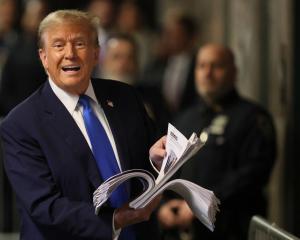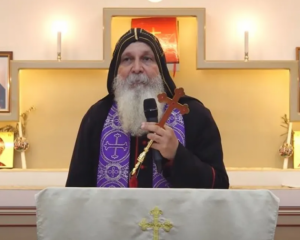Singaporean graphic novelist Sonny Liew dominated the comic industry's equivalent of the Oscars, scooping three Eisner Awards for "The Art of Charlie Chan Hock Chye" - a wry alternate history of tightly-controlled Singapore.
Liew picked up the top prize for Best Writer/Artist, Best US Edition of International Material - Asia, and Best Publication Design at the annual awards at San Diego Comic-Con on Friday night.
Speaking before the ceremony, Liew told Reuters his main target audience had been fellow-Singaporeans, and he had never expected to find an overseas readership for the book, which has now been translated into French, Italian, Spanish and Portuguese.
"I always wanted people to read the book and get a sense of how rich our history was," Liew said.
"I think the so-called official narrative Singapore story is part of our history, but it's not the whole story and I wanted to tell a more inclusive version of our history, and I hope that's what people reading the book will get from it."
Singapore's first prime minister, the late Lee Kuan Yew, is the central figure in the history of Singapore during the struggle for independence from British colonial rule, and subsequent secession from Malaysia in 1965.
But Liew's story also highlights the role played by others, most notably Lim Chin Siong, a trade union leader who was jailed during the independence struggle and later by Lee's government.
Often referred to by his initials LKY, Lee ruled Singapore for three decades, and is revered for raising the tiny city-state to First World status and maintaining political stability in an otherwise volatile region.
While he was also criticised at home and abroad for controlling the media, public protest and political opponents, Lee said his firm policies were needed to safeguard the island's security.
Lee's son Lee Hsien Loong is the current prime minister, his People's Action Party has led Singapore since independence, and the opposition only hold a handful of seats in parliament.
Liew recounted how he had feared the book, first published two years ago, had been doomed to fail after Singapore's authorities signalled disapproval with his different historical perspective by withdrawing funding.
"When the book was first released in Singapore, the National Arts Council withdrew the grant for the book so that was a bit worrying at first because book publishing has really tight margins. But, as it turns out, the attention we got from the withdrawal of the grant raised awareness in Singapore.
"So it's actually done really well in Singapore in terms of sales and people being aware of the book and it's been generally good, I think."












